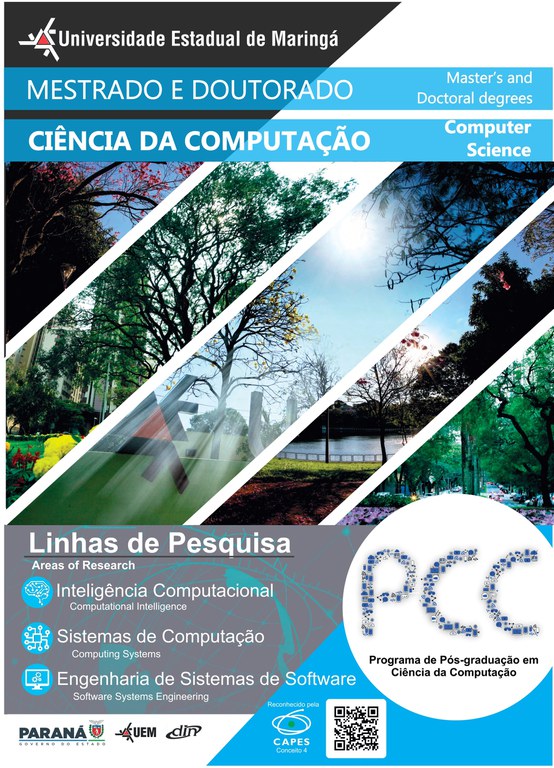Areas of Research
PCC's Master's and Doctoral courses are developed in three lines of research.
Computational Intelligence
This line involves research on computational intelligence techniques for the development of decision support systems applied to real problems, covering: evolutionary computing, machine learning, natural language processing, image processing, bio-inspired algorithms, computer vision, applied optimization, fuzzy logic, pattern recognition, operations research, deep learning, recommender systems, website personalization, and web data mining.
Computer Systems
This line jointly involves the study and development of algorithms and architectures to support the creation of computing systems. The line covers Internet of Things (IoT) contexts, wireless sensor networks, computer networks, embedded systems, robotics (modeling, control and navigation), parallel programming, computer architecture, compilers, programming languages and teaching-learning using robotics.
Software Systems Engineering
This line involves investigations into techniques to support the production of software, emphasizing the improvement of the quality of products and processes. The line aims to provide researchers with solid technical knowledge in Software Engineering, enabling them to analyze, propose solutions and manage the process of building and adopting computerized systems in a work, teaching and learning environment. This line covers advanced methods of software engineering, software product and process line, evidence-based software engineering, software engineering education, distributed software development, free software development, software project management, software process, mining of software repositories, and search-based software engineering.









